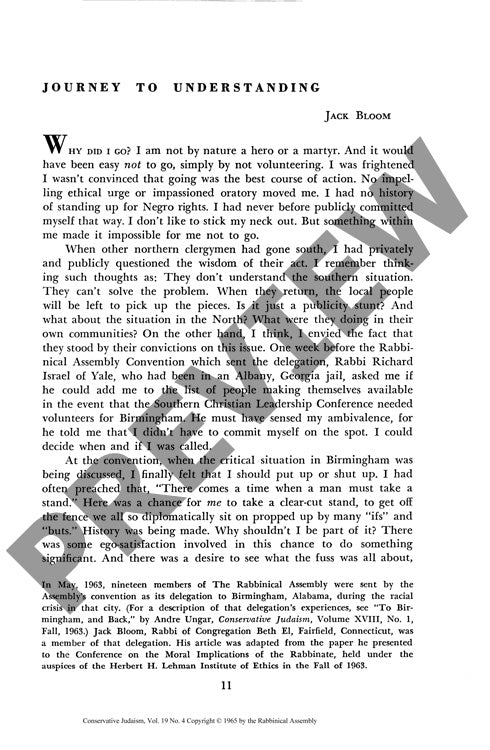Journey to Understanding
Couldn't load pickup availability
In 1963, as racial tensions gripped Birmingham, Alabama, nineteen rabbis answered the call to join the civil rights struggle, marking a pivotal moment in American Jewish engagement with racial justice. Through personal narrative and reflective analysis of his experience as part of this delegation, Rabbi Jack Bloom documents how direct participation in civil rights activism transformed abstract principles of racial equality into profound personal understanding. The transformation emerged through immersive experiences: being led by African American leaders, living within the Negro community, and witnessing systematic discrimination firsthand. Using autobiographical reflection and observational analysis of community responses, the research traces changes before, during, and after the Birmingham experience. The impact extended far beyond personal transformation, creating ripple effects throughout the author's Connecticut congregation, where congregants confronted their own racial ambivalence and the synagogue ultimately embraced public civil rights advocacy. The findings reveal that symbolic religious leadership through direct action proved more effective than traditional sermonizing in promoting social change. This case demonstrates how experiential engagement with social justice issues can resolve long-standing ethical ambivalence and create sustainable community transformation, illuminating the powerful intersection between religious obligation and civil rights activism.

More Information
-
Physical Description
-
Publication Information
Published 1965
ISBN
-
Publication Credits
Jack Bloom

